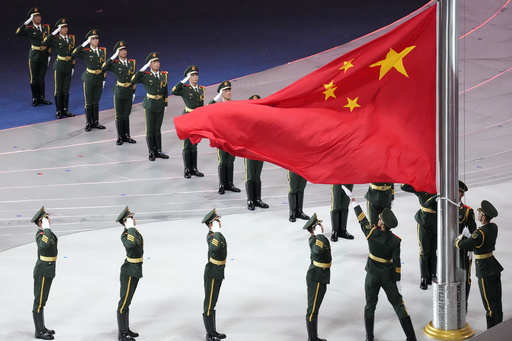
It seemed a scenario straight out of a thriller. When allegations of doping arose against swimmers from China earlier this year, an official quickly devised a theory: the athletes had inadvertently consumed contaminated noodles.
This official posited that a criminal conspiracy could have contaminated the cooking wine used in noodle preparation with a prohibited heart medication, which somehow affected the swimmers’ test results.
During discussions with international anti-doping officials, this explanation was elaborated upon, eventually making its way into a considerable collection of evidence submitted to the attorney who was tasked with investigating the case of 23 Chinese swimmers who tested positive for the same banned substance.
The investigative lawyer, appointed by the World Anti-Doping Agency (WADA), found little merit in the noodle contamination theory. Eric Cottier, the investigator, dismissed it as speculative, stating, “The Investigator considers this scenario, which he has described in the conditional tense, to be possible, no less, no more.”
Despite this dismissal, Cottier noted that both WADA and the Chinese authorities had mishandled the situation. However, he ultimately determined that WADA acted appropriately in not contesting China’s assertion that the athletes had been contaminated without fault.
Critics have expressed concerns that a more thorough examination of the noodle contamination theory could have led to different conclusions. Rob Koehler, director general of Global Athlete, remarked, “There are more story twists to the ways the Chinese explain the TMZ case than a James Bond movie. And all of it is complete fiction.”
In April, reports revealed that the positive tests among the Chinese swimmers stemmed from the banned heart medication trimetazidine (TMZ). China’s anti-doping agency declared the athletes were affected by contamination, absolving them of blame. WADA accepted this conclusion without further inquiry, and China was not required to issue a public statement regarding the findings, a common practice in similar situations.
The initial rationale for contamination centered on the discovery of TMZ traces in the kitchen of the hotel where the swimmers stayed. Cottier’s report indicated skepticism regarding this explanation, mentioning that WADA’s chief scientist expressed doubts about the realities of the alleged contamination despite ultimately accepting the Chinese authorities’ narrative.
Yet, an important question lingered: how did TMZ end up in the kitchen in the first place? Shortly after the positive tests emerged, a meeting was convened on April 30 by the Institute of National Anti-Doping Organizations. There, Li Zhiquan, head of China’s anti-doping agency, reiterated the contamination explanation but introduced a potential method of how the kitchen could have been tainted.
Li referenced a previous case involving a low-level positive test for TMZ attributable to a pharmaceutical factory that had used industrial alcohol containing the drug in its production process. He claimed that this tainted alcohol subsequently entered the market illegally and was then reused to manufacture cooking wine, which was ultimately used in preparing beef noodles consumed by the athletes. He insisted, “The contaminated beef noodles were consumed by that athlete, resulting in an extremely low concentration of TMZ in the positive sample.”
Following this startling presentation, anti-doping leaders showed interest in Li’s assertions. In the months that followed, emails circulated to ensure these details about the contaminated noodles and wine reached WADA’s practicing legal team, enabling them to relay the information to Cottier.
Li’s request to keep the noodles narrative confidential didn’t stop the information from being referenced in Cottier’s report; however, he approached it cautiously. Cottier noted that for such a theory to be credible, it would require substantiation through documentation and scientific verification.
Neither WADA’s general counsel nor officials from the Chinese anti-doping agency responded to inquiries regarding the noodles narrative and the other athlete allegedly involved in it.
In the meantime, 11 of the swimmers who originally tested positive have since participated in competitions at the Paris Games, amid ongoing controversy surrounding the entire doping case. Although WADA has declared the case resolved, Koehler and others advocate for an independent investigation to bring clarity to the situation.
Koehler expressed concerns that it appears as if authorities are improvising their narratives, hoping the public will forget. “Which clearly it has not,” he asserted.
